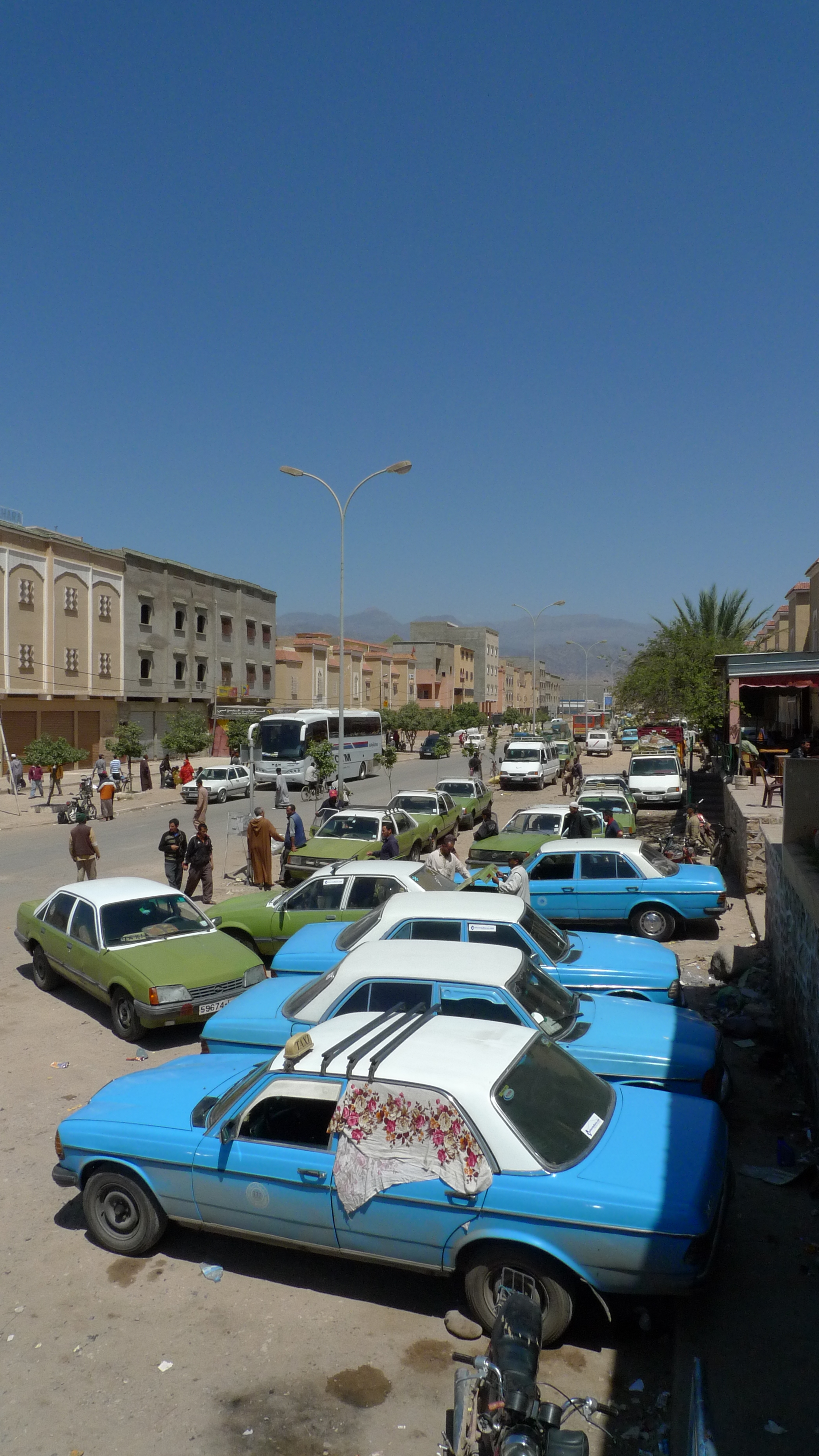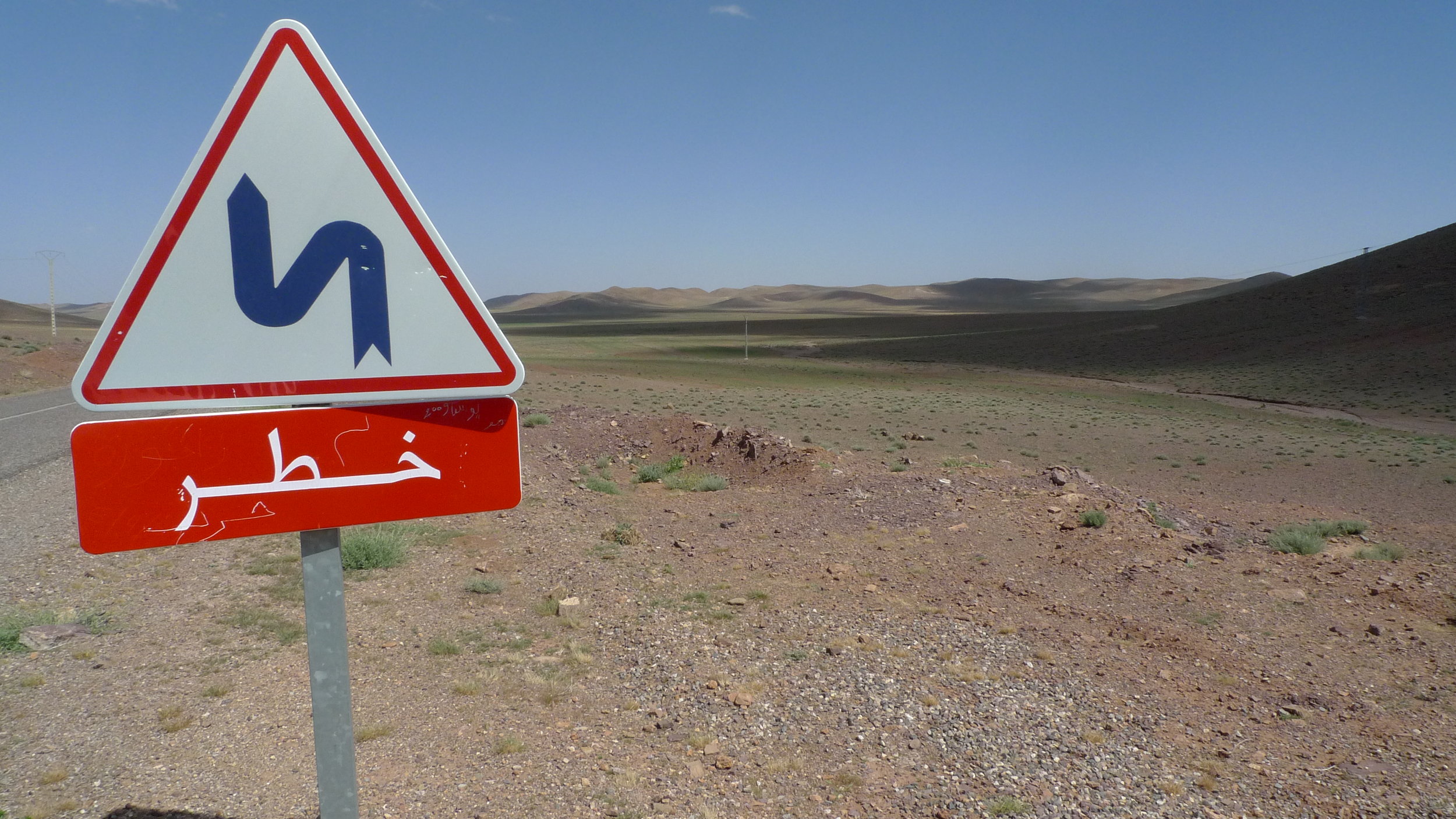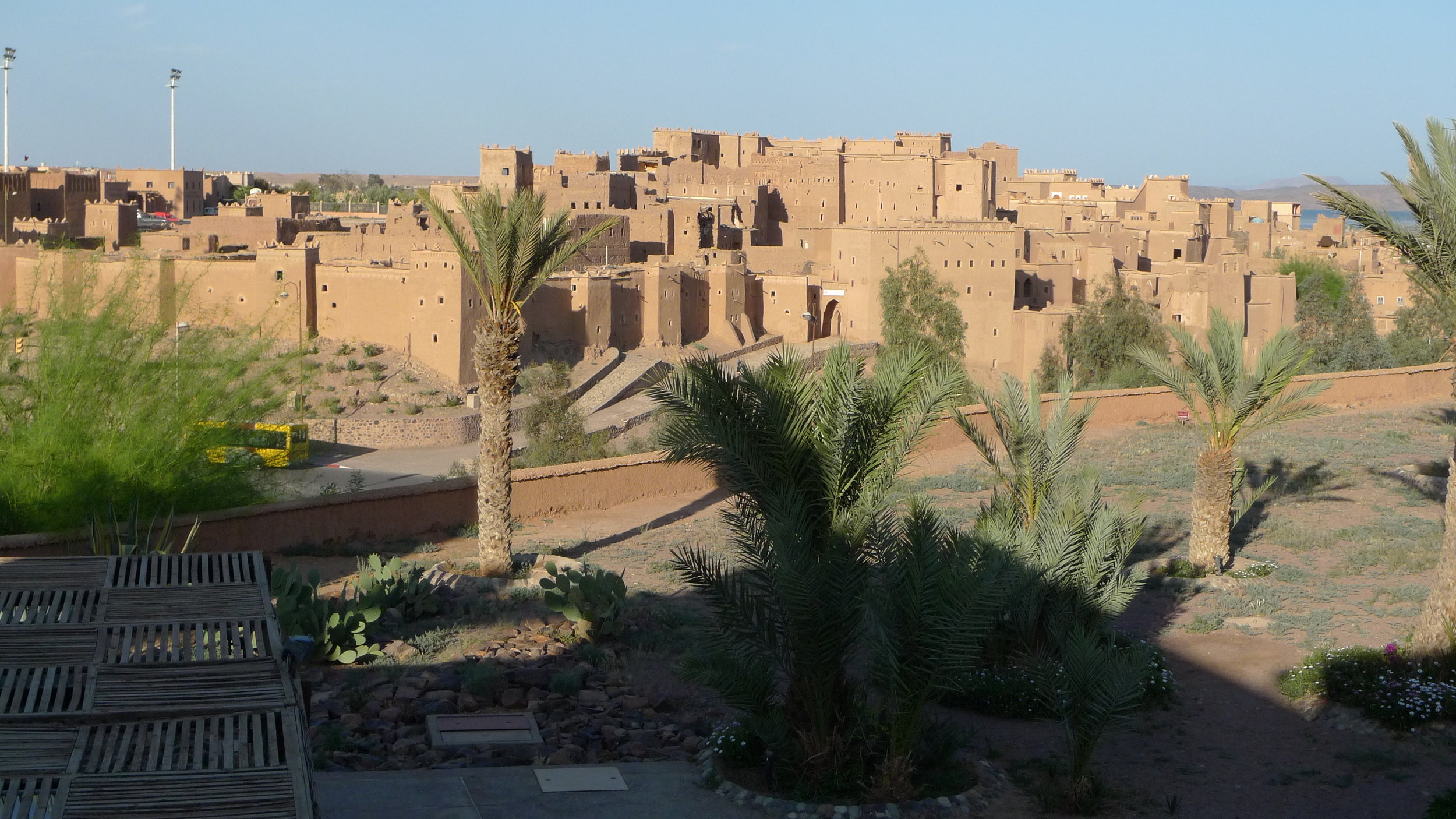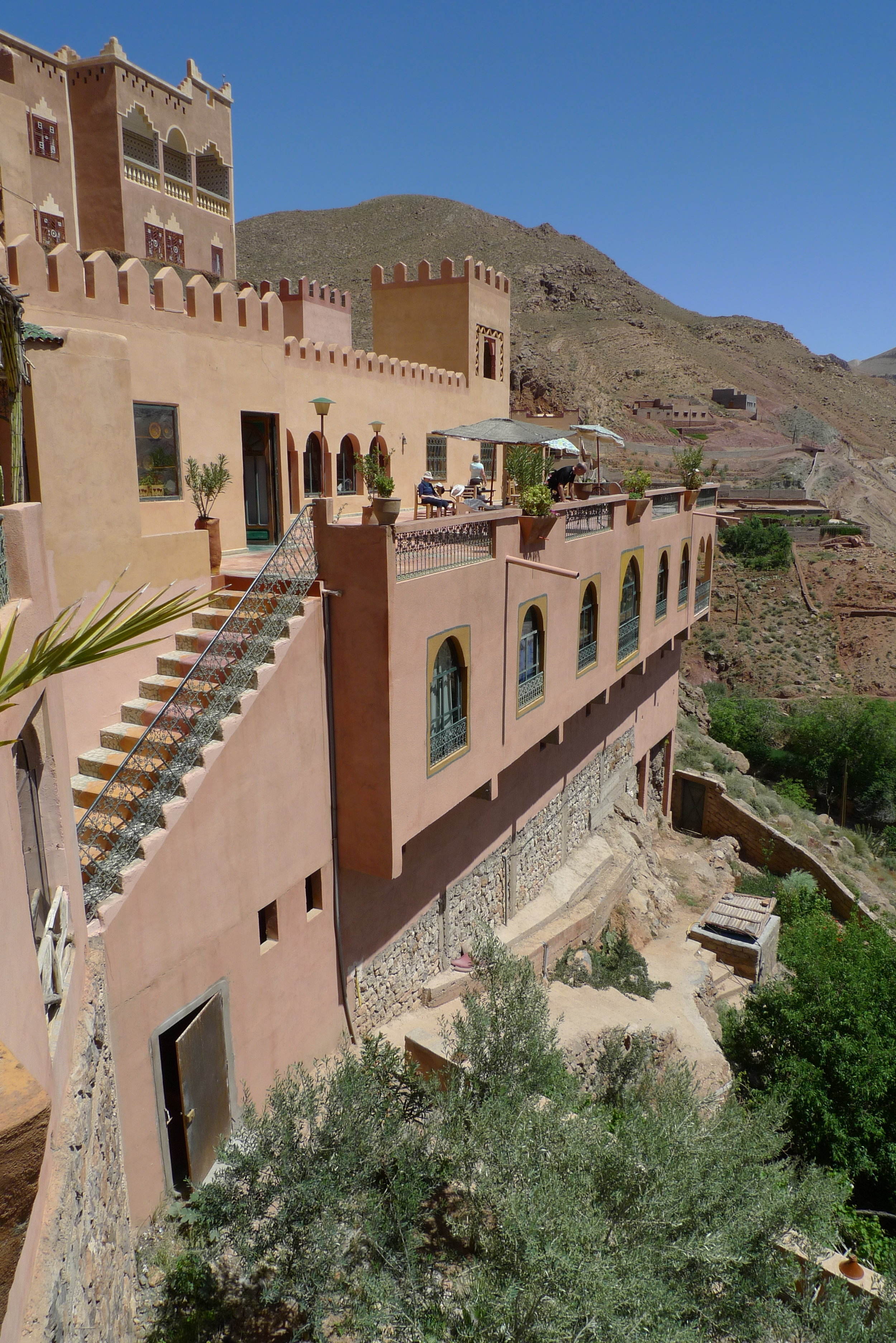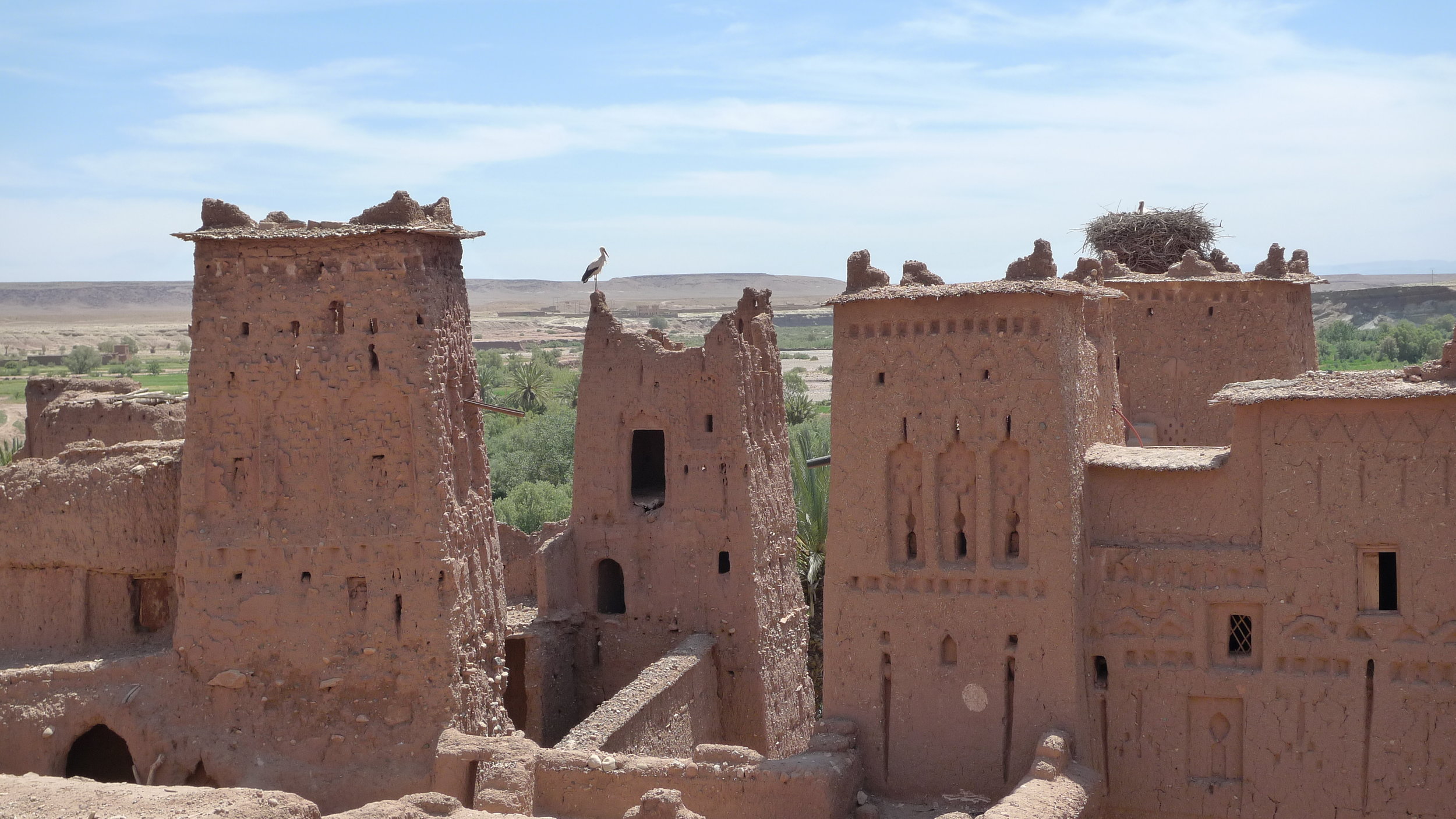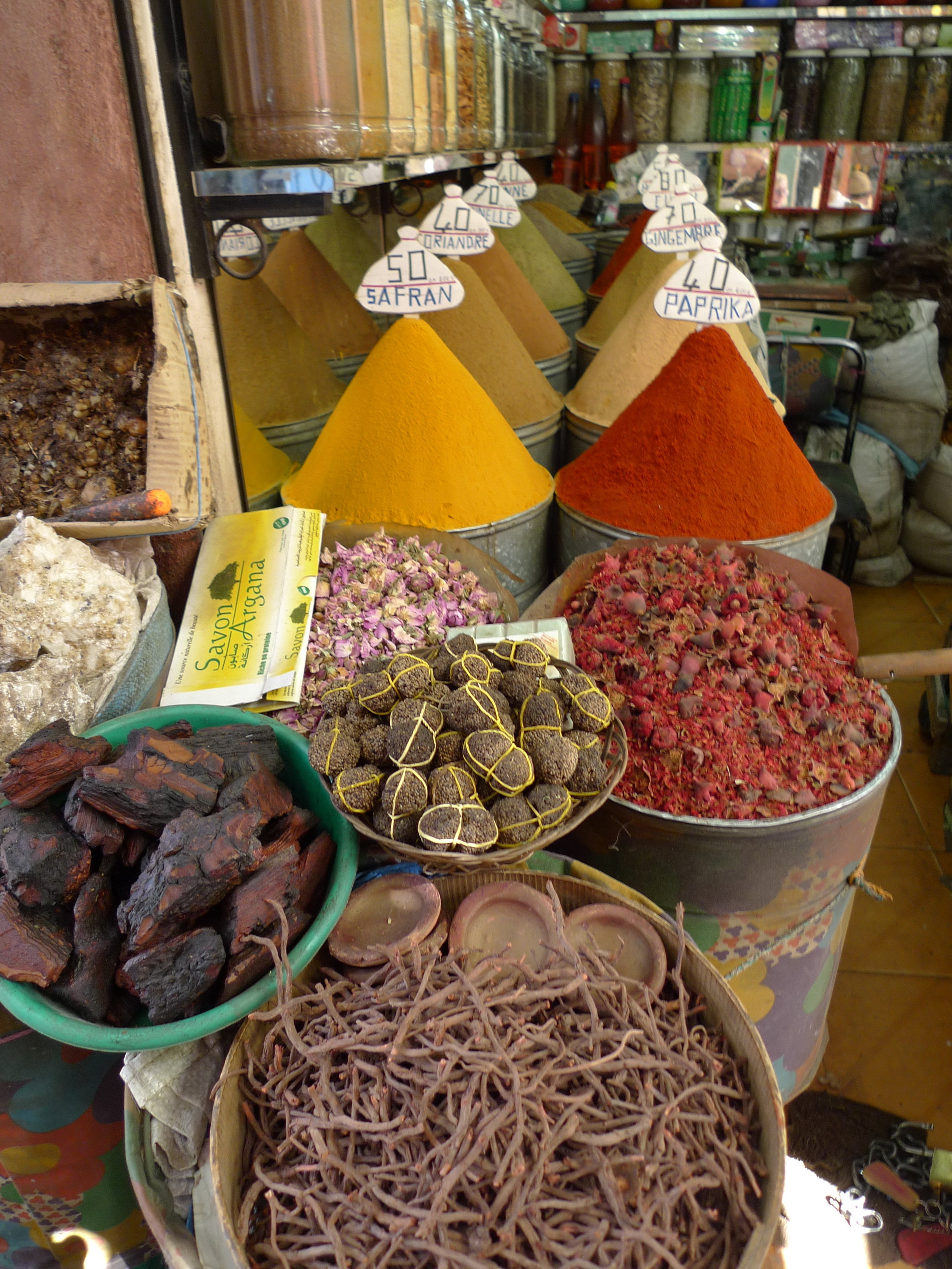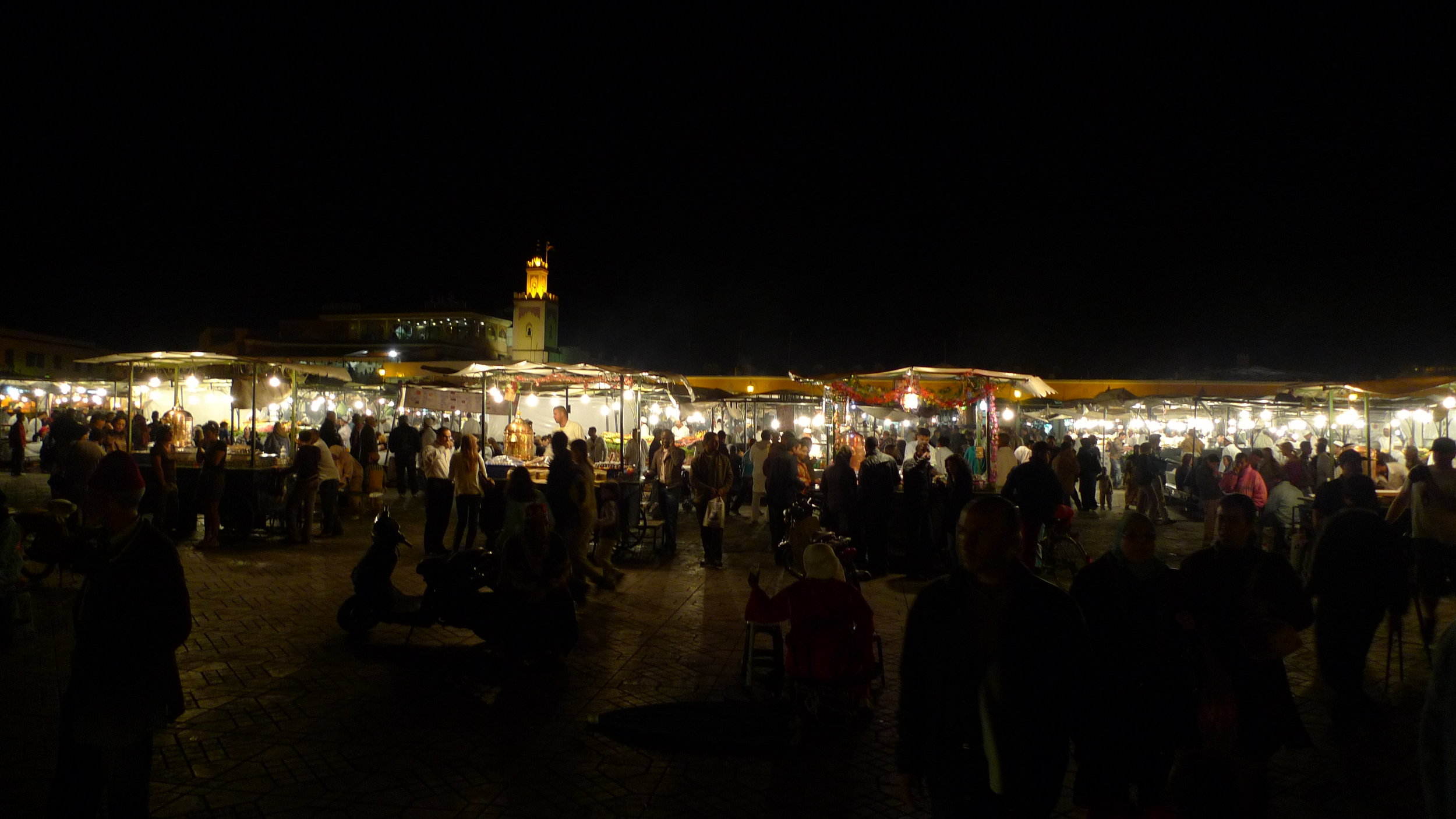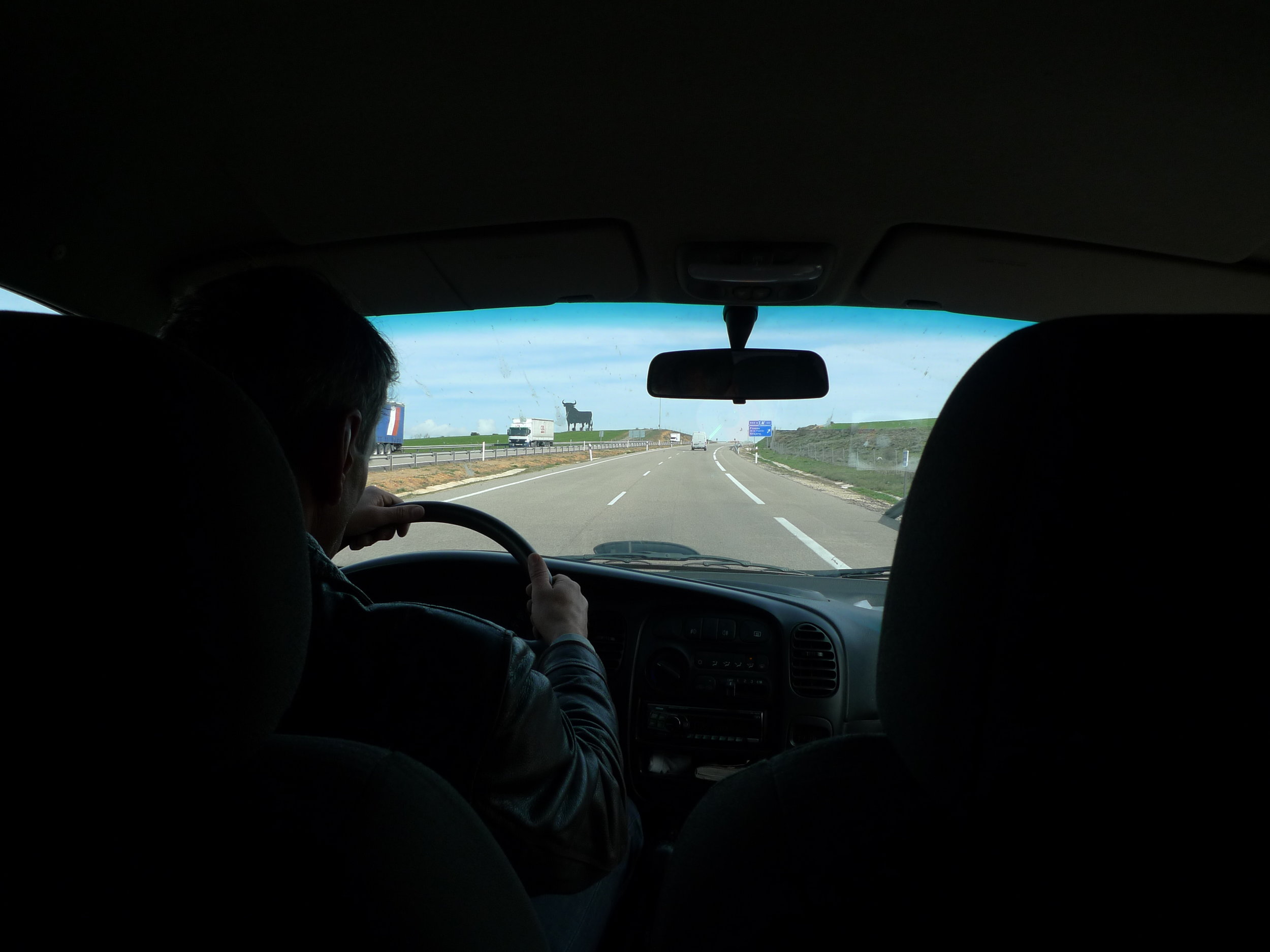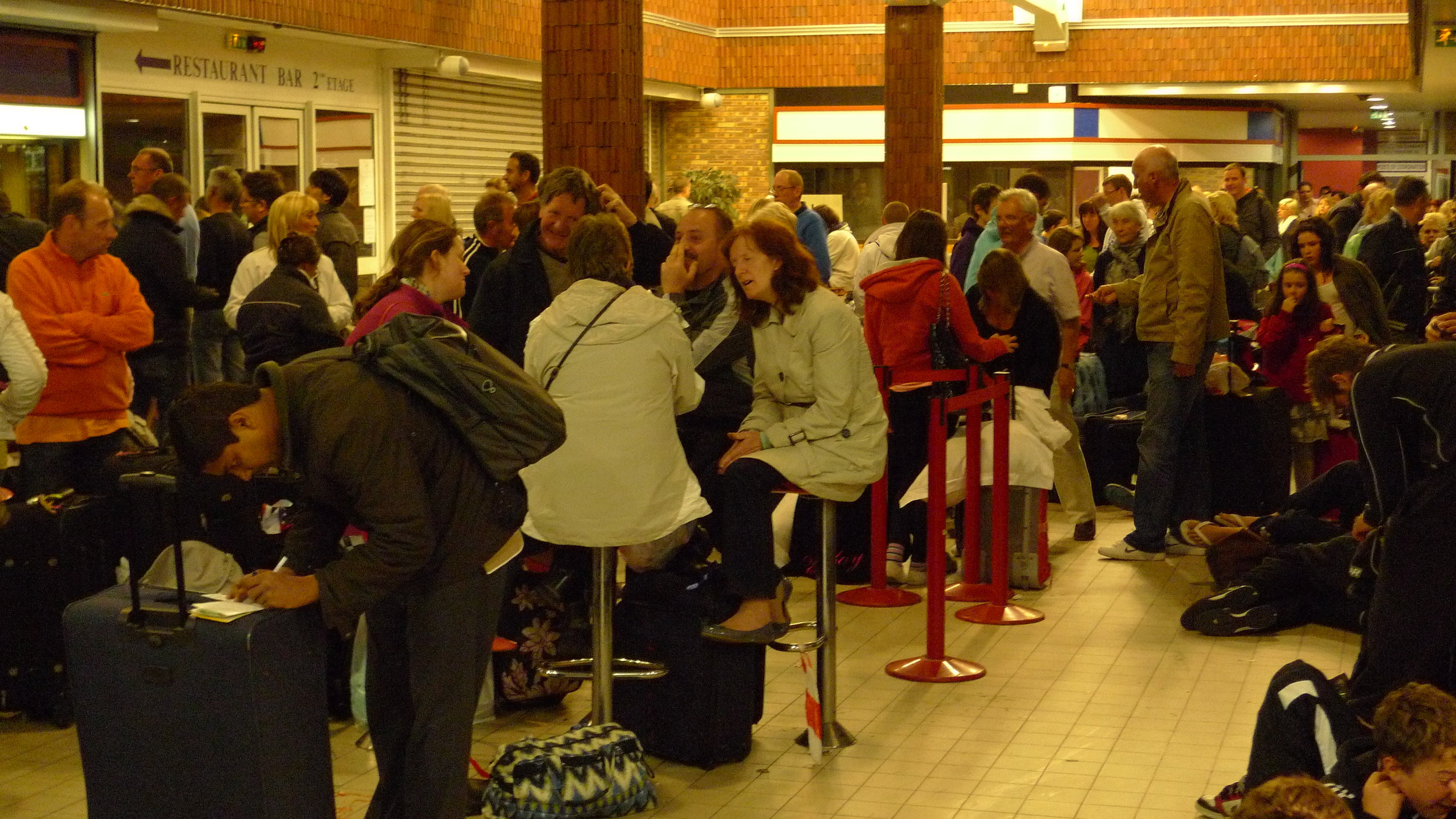April 2010
FOR THE LAST FEW HOURS, Damian O’Flynn, the Irish architect we found in a Malaga supermarket, perched on the edge of his seat in the people carrier and watched our Spanish driver Domingo like a bird of prey studying its next meal.
Domingo was dog tired and as mad as hell. The day before, the Madrid hotel he worked for had made him drive to Cadiz and back, a return trip of more than 1,600 miles. He’d managed five hours sleep. And now the hotel had instructed him to take a party of four stranded Brits and one Irishman from Madrid to Calais – another 1,500 miles by the time Domingo got back home: 1,500 miles for €1,500, or a Euro a mile – most of which he wouldn’t see. He had no English except “money finish” and we reckoned it was a 20-hour journey.
For the first nine or ten hours, Domingo had done pretty well. Dark-skinned, leathery-faced and thin, he had driven like a professional, gray eyes flicking between the road ahead and the three rear-view mirrors. And then tiredness kicked in. He whistled to keep himself awake, he shook his head from side to side, he developed a tick, flicking his head once to the left repeatedly, he drove slowly and then he drove fast, touching almost 120 mph at one point. As we approached Rouen, he began to fall asleep at the wheel and he veered off the carriageway, hitting the rumble strip on the roadside – which was why Damian was watching him so closely. “It happens when you think you’re almost there,” Damian said quietly. “You begin to relax.”
The fact is that we were all tired. This was the last leg of a three-day journey overland from Agadir in Morocco to the UK.
We had been due to fly home on April 17, but all flights had been suspended because of the ash cloud from an Icelandic volcano with an impossible name. The best Ryan Air could offer us was a flight on April 26, more than a week later – and even then there were no guarantees.
So, we made our own way: 600 miles through Morocco in a hired 4×4, with an overnight stop in Marrakesh and then on past Casablanca and Rabat to Tangier; across the Straits of Gibraltar to Aljaciras in Spain; a taxi 150 miles to Malaga; a train to Madrid… and that’s where we got stuck. There were no flights; no trains into France because of a rail strike; not a car available for hire, we were told, in the whole country; ferries at Santander and Bilbao booked out for a week; buses full. We began to think about buying a car, or hiring a coach and selling seats to the stranded. Perhaps we would make a profit.
Ironically, the holiday that preceded our homeward journey from North Africa to Kent had been a road trip. We had driven from Agadir to Taroudant, a pink-walled fortress city I had last visited more than 30 years before, where we stayed for one night. From there, we travelled to Ouarzazate, where we spent a couple of days touring the surrounding countryside and visiting film studios. Then we had driven over the Atlas mountains, dropping down through surprising greenery into Marrakesh, where we stayed for three days in a Riad, run by Antoine Gely, an engaging and hospitable Frenchman with a nine-year old daughter.
From Marrakesh, we went to Essaouria on the coast for what was supposed to have been our last night in Morocco. As we checked in, TV screens behind reception flickered with the news that flights had been grounded. “I think we might have a problem,” my friend Andrew had said.
On the way into Morocco, a week earlier, we had stood in a queue at passport control behind a 20-something Chinese woman with a barcode tattooed on the back of her neck. She wore tight hot pants, four-inch stiletto heels and a silver-sequined jacket over a white t-shirt. She swore in English into her phone, foully but cheerfully, ordering some guy to “fucking come and pick me up”. She carried a passport from the People’s Republic of China, and she was entering a Muslim country dressed like a lap dancer.
When we arrived at Agadir aiport after the 100 mile drive from Essaouria on that supposedly final day, she was ahead of us in the queue again, this time more conservatively dressed and accompanied by two young men. She reached the front and spoke through a hatch to an airport official, and then turned – apparently happy with the outcome – and headed off with her companions to the Royal Air Maroc office. I stopped them to ask what deal they’d been offered. She looked up at me blankly. And as one of her friends, an Australian, began to answer, she turned and walked off.
Later, I discovered that barcode tattoos are more significant than they seem. I had assumed that the subliminal message was “Check me out”, which would have been quite a good joke. In fact, the barcode tattoo developed as an ironic comment on the commoditisation of human life in an increasingly commercial world. Often, they’re temporary, which suits the society we live in I guess. I wondered whether the People’s Republic of China would approve or disapprove.
We queued for a while longer, received the bad news from the hatch and went off to rebook our vehicle for another two days.
The journey from Agadir to Marrakesh, over the Atlas mountains for a second time, was terrifying. Coaches overtook slow trucks on hairpin bends, sometimes forcing oncoming vehicles into the dirt track at the side of the metalled road. It was hard work, and hours later we were glad to find ourselves in a conference hotel on the outskirts of the city.
Marrakesh to Tangier was easier: motorway most of the way, with a changing landscape that eventually broadened into an estuary near Tangier. We handed the car back to the hire company and blagged a lift to the ferry terminal. It was there that a man checked my ticket and waved us through a fast queue. Only later did we discover that he was one of the many Moroccans who hang around “helping” tourists in the hope of a tip. As a result of his intervention, our passports had not been stamped and we were turned away on the gangway to the ferry. But a combination of Andrew’s frustration and his excellent French got us what we wanted: after a tense 15 minutes, we had our passports stamped and returned to a ferry that hadn’t sailed, as we had feared, and in fact turned out to be almost empty.
We fell into a conversation with a man from Otley outside Leeds who said he’d travelled overnight “toilet class” by train from Marrakesh to Tangier with his wife and two kids – both of whom were due back in school. He shrugged. “I’m resigned to it taking a week,” he said.
We also chatted with a woman making her way back to Amsterdam with her teenage son: she had no plan, she was just moving. Everybody was stoical, at least until we reached Aljaciras, a nondescript port town with a railway station that closed at 9pm and what looked like one decent hotel. At 11pm the streets were full of families with suitcases on wheels rattling through the streets looking for somewhere to stay. It was like something from Dawn of the Dead. With luggage.
Andrew queued for bus tickets, and just missed a trip to Barcelona the following day. And then we joined the tourists in the streets. When the last hotel we approached suggested a hostel around the corner – “I’m told it’s quite clean” – we took the advice of a stranger and hired a cab for the 150 mile journey to Malaga, which at least had decent hotels and a proper international railway station.
At midnight, Andrew was still doggedly trying to move forward. We were on Malaga train station, which was more or less closed – but Andrew found somebody to tell him that we could hire a car to Madrid and take an overnight train to Paris the following day, which cheered him up. I found a good hotel around the corner, spoke briefly to a German family heading back for Munich and looking for the bus station, and then we went for a pizza.
But, of course, we were playing a kind of international game of snakes and ladders and the following day we tumbled down the ladder again: there were no cars and no trains were running in France. Frustrated again, Andrew found a travel agent in a supermarket to try and find out what could be done – and that’s where we came across Damian, sitting by himself.
He was in his mid-50s and had a fringe of curly white hair around a bald patch. He was wearing zip-off beige trousers, a dark jacket and a striped shirt and carried just one small bag. He had popped over to Spain, he told us, for just a couple of days to sort out a problem at an apartment he owned. Like us, he’d got stuck – and he was by himself, which made it worse.
It turned out that he was staying in the same hotel as us and he tagged along as we checked out and joined another queue – this time of patient Europeans, mostly Brits it seemed, waiting for information or tickets at Malaga railway station. There were jokes about how difficult it would have been to cope with all of the queuing had we not been British, and then we were on a fast train to Madrid, moving (finally) at 264km an hour and watching a great film, Clint Eastwood’s Grand Tourismo. That was the best bit of the whole journey.
When we got to Madrid, Andrew headed for Avis. But it was a false hope. Booking or no booking, there were no cars available anywhere.
We bantered with some taxi drivers outside the station about the cost of hiring a cab to Calais. It was a lot. What we didn’t know then was that some of the stranded had done just that and on the final leg of our journey home we saw plenty of taxis from Spain and Portugal on the road through France.
As we checked in to a hotel near the station, Andrew asked the guy behind reception if he knew anybody with a vehicle who would drive us to Calais, whatever the price. “We’ll even pay you to do it,” I said. And the guy did know somebody who had a people carrier with a few empty seats in it and was heading that way the following day. Finally, we had found somebody with a little entrepreneurial spirit.
So, we celebrated with Damian in a bar before heading off into Madrid for a good meal at Mayfair prices. We drank too much and I ate half of Damian’s dinner before realising my mistake, which he found quite funny. Damian was as Irish as they come, charming, with twinkling eyes and a love of the craic: a good choice of travelling companion and a great bloke to be around.
The next morning we all hit the ATM in the bank next door, using whatever cards we had to raise the €1,500 Euros we’d agreed for the journey. Domingo was late – looking for a suitable vehicle, we were told. And we watched as another group set off in a hired people carrier organised by the hotel. Perhaps they had more than a little entrepreneurial spirt, then. Finally, it was our turn.
Cut to 18 hours later, around 3am at the P&O ferry terminal in Calais. Domingo says a brusque farewell, shaking everybody’s hand but looking nobody in the eye. He pockets the change. And then we’re in the terminal building and there are travellers everywhere, some asleep on the floor, others in a long queue for tickets.
A man with a yellow tabard bearing the words “British Government Official” congratulates us on having made it so far. Somebody else hands out coffee in paper cups.
I speak to a man with a white goatee beard and a pork pie hat. He and his wife have an apartment in Nice, he tells me, and had been lucky enough to hitch a lift in a white panel van carrying two motorbikes. Because there were no seats in the back of the van, they had put a mattress in there and a duvet and then had done the most sensible thing possible. They had gone to sleep.
They were woken by French customs officers doing a spot check on commercial vehicles for illegal exports of cigarettes and alcohol. What they found when they opened the back doors of the van was a middle-aged Englishman and his wife in bed. They closed the doors again and went away.
Like the Tangier ferry, the 4am boat to Calais was emptier than might have been expected, given the number of people in the terminal: in fact, we were moved forward from a 5am sailing. It looked as if the ticket office – selling tickets to foot passengers at a hefty €65 a head – simply couldn’t process sales fast enough.
And then it was dawn over Dover and, apart from a little tidying up, the end of the adventure. We left Damian at Dover Priory railway station (he got home something like 16 hours later via Hollyhead) and we stepped out of the story back into the mundane.
This piece is dedicated to Domingo and Damian who between them got us back to Calais. Special thanks are due to Andrew, for his drive, energy and persistence, and to our respective wives Val and Lynn who never once lost patience. Me, I’d like to do it all again – only more slowly next time.

